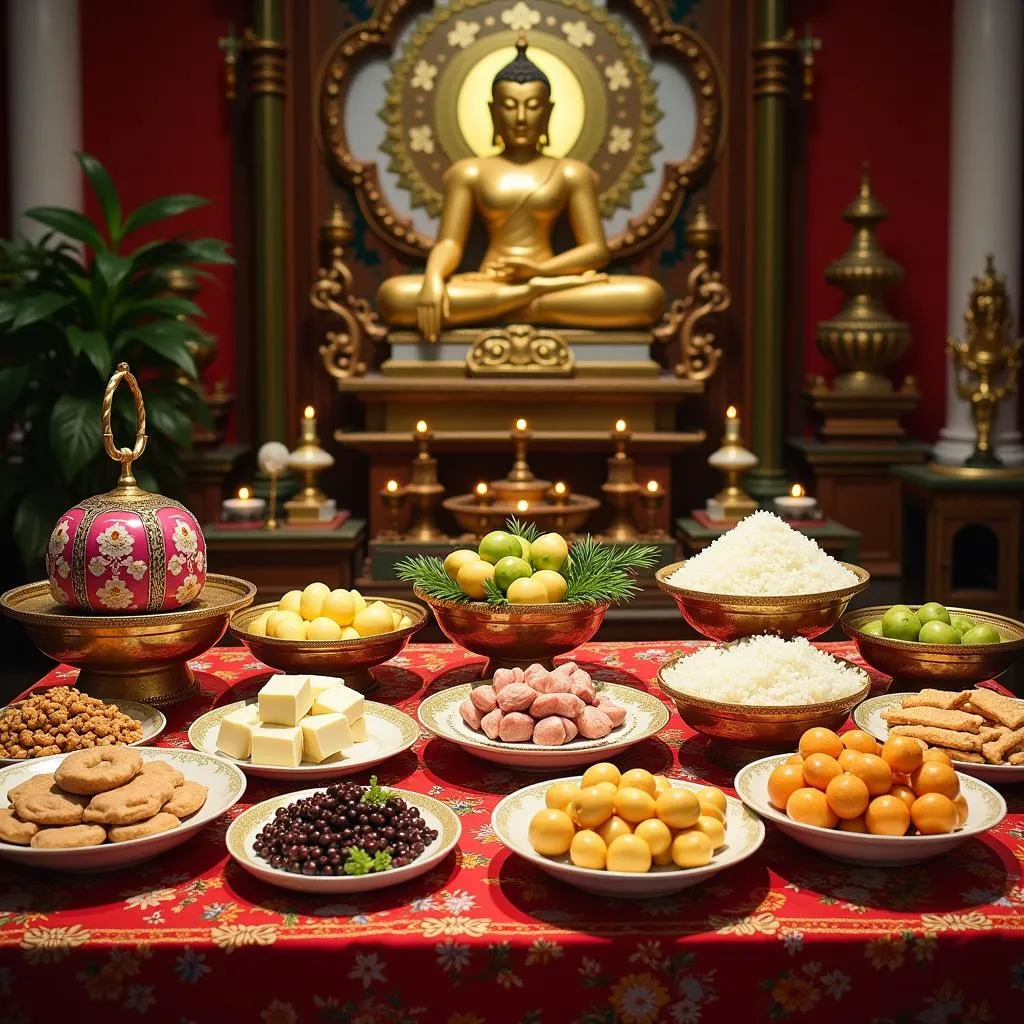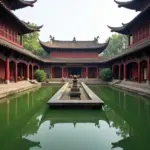Ever wondered about the special foods prepared for ancestral offerings in Hanoi? You’re not alone! Many travelers are curious about the unique traditions and customs surrounding ancestor worship in Vietnam. It’s a deeply ingrained cultural practice, and food plays a central role, symbolizing respect and connection with the ancestors.
A Glimpse into the Ritual of Ancestor Worship
In Vietnamese culture, ancestor worship is a fundamental aspect of life, reflecting a deep respect for the past and a belief in the continued presence of ancestors. It’s not just a ritual but a way to express gratitude and seek guidance from those who have passed on.
Understanding the Significance of Food Offerings
Food offerings are considered a vital part of ancestor worship. The selection of specific dishes is believed to honor the ancestors and demonstrate filial piety. The foods are symbolic, each representing a different aspect of well-being or prosperity.
Common Foods Used in Ancestor Worship
Here are some of the most common foods used in ancestral offerings in Hanoi:
- Xôi (Sticky Rice): Often referred to as the “rice of the gods,” xôi represents abundance and fertility. It’s a staple dish in Vietnamese cuisine and is considered auspicious for ceremonies.
- Bánh Chưng (Square Rice Cake): This traditional cake is a symbol of unity and family. It’s made with sticky rice, mung bean paste, and pork, all wrapped in a square-shaped leaf.
- Bánh Dầy (Thick Rice Cake): Similar to bánh chưng, bánh dày is thicker and typically filled with mung bean paste. It represents strength and resilience.
- Gà luộc (Boiled Chicken): Boiled chicken is a common offering representing a healthy and prosperous life. It’s often served whole, symbolizing completeness and integrity.
- Trái Cây (Fruits): Fruits are a vibrant and colorful offering that symbolizes the beauty and variety of life. They are also seen as gifts from nature to the ancestors.
- Mâm ngũ quả (Five-Fruit Tray): This traditional tray features a selection of five fruits, each representing a different element or virtue. This is a beautiful display of colors and symbolism.
Frequently Asked Questions
Many travelers have questions about the foods used in ancestor worship. Here are some of the most common ones:
What is the Significance of the Five Fruits in the Mâm ngũ quả?
The five fruits in the mâm ngũ quả represent the five elements of the universe: metal, wood, water, fire, and earth. They also symbolize the five virtues of benevolence, righteousness, propriety, wisdom, and trustworthiness.
What are the Different Types of Xôi used for Ancestor Worship?
There are many different types of xôi prepared for ancestor worship, each with its own unique meaning. Some popular varieties include:
- Xôi gấc (Sticky Rice with Red Fruit): This vibrant red xôi symbolizes good luck and prosperity.
- Xôi đậu đen (Sticky Rice with Black Beans): This flavorful xôi is associated with health and longevity.
- Xôi vò (Steamed Sticky Rice): A simple yet traditional offering, xôi vò represents the purity and simplicity of life.
Are there any Special Dietary Considerations for Ancestor Worship Offerings?
While the specific foods offered may vary based on family traditions, it’s generally important to present the ancestors with food that is clean, fresh, and prepared with care. Many families also avoid offering food containing alcohol or garlic, as these are considered to be associated with the underworld.
Traveling to Hanoi? Explore the Hidden Gems of Ancestor Worship
Hanoi is a city rich with cultural traditions, and ancestor worship is deeply interwoven into the fabric of everyday life. As you explore the city, you’ll notice temples, shrines, and family homes adorned with offerings.
 Offering foods in Hanoi temple
Offering foods in Hanoi temple
To gain a deeper understanding of this practice, consider visiting one of Hanoi’s numerous temples dedicated to ancestral worship. You’ll have the opportunity to witness the rituals firsthand and learn about the significance of the offerings.
TRAVELCAR: Your Partner for Exploring Hanoi’s Cultural Delights
Here at TRAVELCAR, we understand that travel is not just about sightseeing but also about immersing yourself in the local culture. We offer a range of services to help you explore Hanoi’s unique traditions and customs.
- Private Car Rentals: Explore Hanoi at your own pace with our comfortable and reliable private car rental services. Our fleet includes 16-seater, 29-seater, and 45-seater vehicles to accommodate any group size.
- Airport Transfers: We provide seamless airport transfers to and from Noi Bai International Airport (HAN), ensuring a stress-free arrival and departure.
- Customizable Tours: Our knowledgeable team can create custom tours tailored to your interests, including visits to historic temples, bustling markets, and authentic culinary experiences.
We believe that travel should be an adventure, and we’re here to make your trip to Hanoi unforgettable.
For assistance, please contact us at: 0372960696 or email us at: [email protected]. Our customer support team is available 24/7 to help you with your travel needs.
Let us help you discover the hidden gems of Hanoi and experience the magic of its unique traditions.
